This article was medically reviewed by Janice Litza, MD. Dr. Litza is a board certified Family Medicine Physician in Wisconsin. She is a practicing Physician and taught as a Clinical Professor for 13 years, after receiving her MD from the University of Wisconsin-Madison School of Medicine and Public Health in 1998.
There are 10 references cited in this article, which can be found at the bottom of the page.
This article has been viewed 19,919 times.
If you experience unpleasant itchiness and swelling in your mouth and throat after ingesting fresh produce, you may be experiencing symptoms of oral allergy syndrome. Oral allergy syndrome, which is also called pollen-food allergy syndrome, is a common type of allergy that many older children, teens, and adults experience. If you find yourself experiencing unpleasant reactions to eating fresh versions of particular fruits, vegetables or tree nuts but have no problem with the cooked versions of the same foods, you may have this condition. If you are concerned about having this condition, you should see your doctor or allergist for a professional diagnosis.[1]
Steps
Recognizing Symptoms of Oral Allergy Syndrome
-
1Check for symptoms immediately after ingestion of fresh produce. To determine whether you are experiencing symptoms of oral allergy syndrome, check to see if you are experiencing symptoms immediately after ingestion of fresh fruits and vegetables. Typically, symptoms will subside once the fresh fruit or vegetable is either swallowed or removed from the mouth. If you experience any of the following symptoms when a fresh fruit or vegetable is in your mouth, you may have oral allergy syndrome:[2]
- Scratchy throat.
- Swollen lips.
- Itchy mouth.
- Swollen mouth.
- Swollen tongue.
- Swollen throat.
- Itchy ears.
-
2Check for life-threatening symptoms. It is very rare for oral food allergy to cause anaphylaxis, but it can happen. One study found anaphylactic shock in 1.7% of oral allergy syndrome patients.[3] You should make sure you are not experiencing any severe reactions to fresh fruits and vegetables and see a doctor immediately if you experience severe symptoms. In particular, get yourself to a hospital if you experience any of the following symptoms after eating fresh fruits or vegetables:[4]
- Vomiting.
- Dizziness.
- Hives.
- Nausea.
- A tight feeling in the throat.
- Trouble breathing or shortness of breath.
Advertisement -
3Determine whether your reaction is isolated to fresh foods. If you react only to fresh fruits and vegetables, you may be experiencing oral allergy syndrome. However, if you experience a reaction in response to both fresh and cooked versions of a fruit or vegetable, you may have a food allergy. In contrast to conventional food allergies, oral allergy syndrome only happens in response to fresh fruit and vegetables.[5]
- Some reactions may also result from pesticides on fresh fruits and vegetables. If your reaction to fresh fruits and vegetables is mild, then you might try washing the fruits and vegetables thoroughly, such as with a vegetable brush, some white vinegar, or baking soda. You can also try switching to organic produce to see if that helps.
-
4Write your symptoms in a food diary. Keep a food diary in a notebook or on a computer. In your food diary, record your allergic reactions to particular foods. If you experience an unpleasant reaction to eating fresh apples, write down your symptoms in the food diary. You can then use this information when talking to your doctor. You can also look for any patterns in your allergy experience. For instance, you can see if your experience of a specific pollen allergy is associated with reacting to a particular fresh fruit or vegetable:[6]
- If you have a birch pollen allergy, record any unpleasant reactions to almonds, apples, carrots, cherries, kiwis, hazelnuts, peaches, pears, or plums. It is common but not necessary for people with a birch pollen allergy to experience oral allergy syndrome in response to eating fresh versions of these foods.
- Record any unpleasant symptoms in response to eating fresh melons, celery, oranges, peaches, and tomatoes. If you have a grass pollen allergy, you may be more susceptible to oral allergy syndrome in response to eating these fresh foods.
- Record any unpleasant reactions to fresh bananas, cucumbers, melons, zucchini, or sunflower seeds. If you have a ragweed pollen allergy, you may be especially likely to experience oral allergy syndrome in response to fresh versions of these foods.
Communicating Key Information to Your Doctor
-
1Tell your doctor if you have any airborne allergies. Tell your doctor if you experience airborne allergies. The first step in determining whether you have oral allergy syndrome is to assess whether you have related allergy conditions such as hay fever or mold allergy. If you have airborne allergies and you react to eating fresh fruit and vegetables, there is more basis to suspect oral allergy syndrome. To determine whether you have any airborne allergies, you should review your medical history or consider whether you experience any symptoms. In particular, look to see if you have any of the following symptoms of common airborne allergies such as hay fever or an allergy to mold:[7]
- Symptoms of hay fever include sneezing, stuffy nose, an itchy nose, and swollen eyes.
- Symptoms of mold allergy include dry skin, stuffy nose, cough, itchy throat, nose and eyes, and watery eyes.[8]
-
2Tell your doctor about your history of specific allergies. It is important for your doctor to know if you have any specific allergies such as an allergy to grass pollens, alder, mugwort, ragweed, or birch. People with oral allergy syndrome usually have these specific allergies.[9] So, it will be helpful for your doctor to know about these specific allergies when they are making a diagnosis. You may want to tell your doctor:
- “I have an allergy to ragweed and pollen. Do you think this is related to my strange reaction to fresh fruit and vegetables?”
- Also tell your doctor if you have an alder allergy. If you have an alder pollen allergy, you may have trouble ingesting fresh apples, cherries, pears, and peaches.[10]
- The same applies for a mugwort allergy, so let your doctor know. If you have a mugwort pollen allergy, you may experience oral allergy syndrome in response to carrots, apples, melon, celery, watermelon, spices or Chamomile tea.
-
3Communicate key information to your doctor. In particular, it is important to tell your doctor your exact age and whether or not you have had any past reaction to fresh fruits and vegetables. If you are an older child, teen, or young adult and have been eating fresh fruits and vegetables for years without a problem, you are in an at-risk demographic. In many cases, oral allergy syndrome is adult-onset.[11]
- Younger children do not typically experience oral allergy syndrome, although some older children do experience it.
Getting Tested for Oral Allergy Syndrome
-
1Consult a certified allergist. An allergist is a doctor who completed a residency program in internal medicine or pediatrics, followed by a few years of studying allergies and asthma. By seeing an allergist, you can get a professional diagnosis of your oral allergy syndrome.[12]
- Visit the website of the American College of Allergy, Asthma, and Immunology to search for an allergist by city or zip code: http://acaai.org/locate-an-allergist.
-
2Ask your doctor about an appropriate allergy test. The diagnosis of oral allergy syndrome will be made primarily on the basis of your medical history and symptoms. However, your doctor may wish to confirm a diagnosis using a variety of allergy tests.[13]
- Ask your doctor: "Do you think we should test to confirm oral allergy syndrome?"
-
3Get a skin prick test. If you think you may have oral allergy syndrome, you could ask your doctor for a skin prick test. The methods used for testing conventional food allergies do not work well for testing oral allergy syndrome. However, your doctor could do a prick-plus-prick test, which involves using fresh fruit extracts and pricking your skin to determine a reaction. If the test comes back positive, your doctor should be able to confirm the diagnosis.[14]
-
4Do an oral food challenge test. In addition to a skin prick test, your doctor may also conduct an oral food challenge test by having you try eating different raw fruits, vegetables or nuts and recording your reactions.[15]
- If your doctor uses the oral food challenge test, you will be asked to eat small but increasing amounts of specific foods.
References
- ↑ https://acaai.org/allergies/allergic-conditions/food/pollen-food-allergy-syndrome/
- ↑ https://www.ouh.nhs.uk/patient-guide/leaflets/files/5537Poralallergy.pdf
- ↑ https://acaai.org/allergies/allergic-conditions/food/pollen-food-allergy-syndrome/
- ↑ https://www.aaaai.org/Tools-for-the-Public/Conditions-Library/Allergies/Oral-allergy-syndrome-(OAS)
- ↑ https://www.ncbi.nlm.nih.gov/pmc/articles/PMC2917934/
- ↑ https://www.aafp.org/afp/2008/0615/p1678.html
- ↑ https://www.ncbi.nlm.nih.gov/pmc/articles/PMC2917934/
- ↑ https://acaai.org/allergies/allergic-conditions/mold-allergies/
- ↑ https://acaai.org/allergies/allergic-conditions/food/pollen-food-allergy-syndrome/
- ↑ https://www.ncbi.nlm.nih.gov/pmc/articles/PMC2917934/
- ↑ https://acaai.org/allergies/allergic-conditions/food/pollen-food-allergy-syndrome/
- ↑ https://allergist.aaaai.org/find/
- ↑ https://medlineplus.gov/ency/article/003519.htm
- ↑ https://acaai.org/allergies/testing-diagnosis/
- ↑ https://www.foodallergy.org/resources/oral-food-challenge
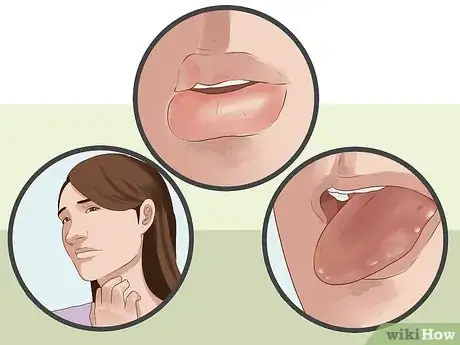

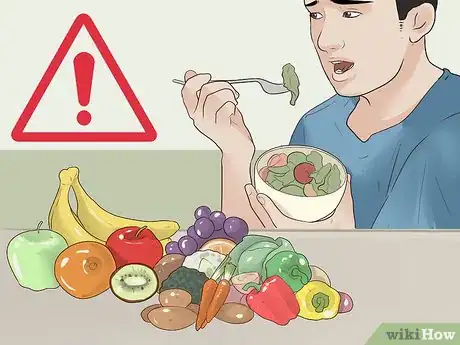

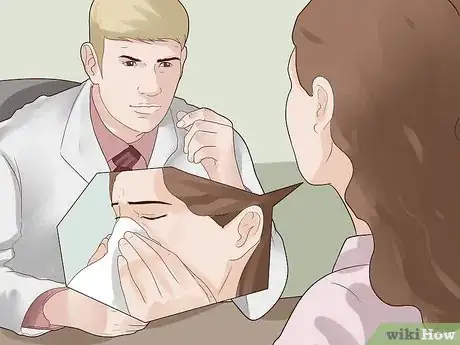
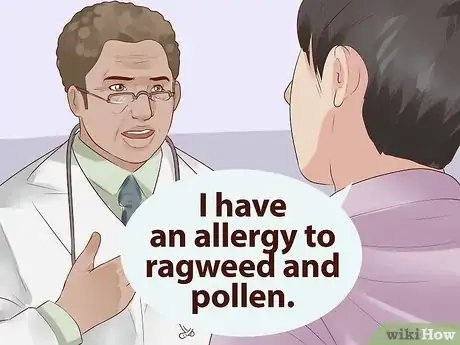


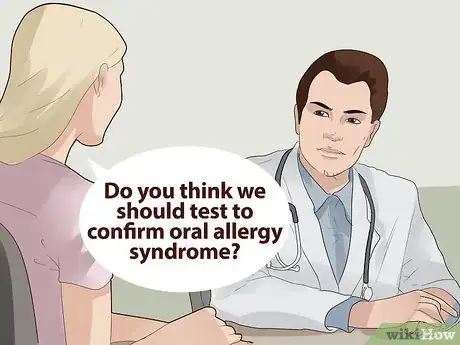


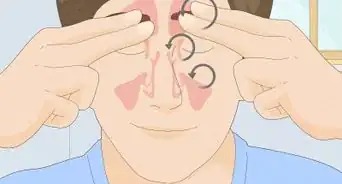

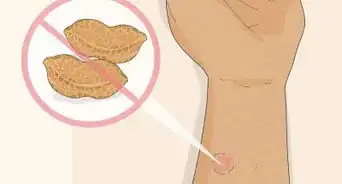





-Step-17-Version-3.webp)












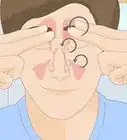






































Medical Disclaimer
The content of this article is not intended to be a substitute for professional medical advice, examination, diagnosis, or treatment. You should always contact your doctor or other qualified healthcare professional before starting, changing, or stopping any kind of health treatment.
Read More...